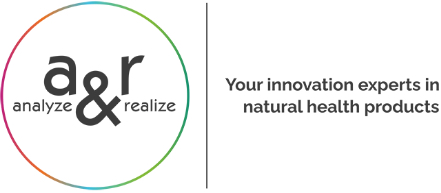During Vitafoods Virtual Expo we had the opportunity to hear Dr Patrick Coppens from Food Supplements Europe talk about several aspects of interest for the food supplement industry.
Food supplements have to comply with specific hygiene rules under the EU food legislation, but the hygiene legislation does not contain much specific information for food supplements. Therefore, Food Supplement Europe has developed several quality guidance documents to support companies with applying GMP rules for food supplements. The developed guidance covers general quality requirements for food supplements but also includes guidance specific for botanical preparations. To have access to these guidelines please click here.
Quality is also linked to a large extent to contaminants, thus the EU regulation 1881/2006 on contaminants applies also to food supplements. In this respect, some compounds have set maximum levels for food supplements such as for citrinin, lead, and polycyclic aromatic hydrocarbons. Currently under discussion is the set of maximum levels for pyrrolidine alkaloids in plants. This will be a very challenging aspect as it will affect current practices. This change will impact the supply chain from growers to collectors of plants. To help companies prepare for that legislation, new guidance – Guidelines and recommendations to reduce the presence of pyrrolizidine alkaloids in food supplements – was set up to support companies with what they have to do throughout the supply chain to ensure that they can meet the low pyrrolizidine alkaloids limits that will come in 2 years.
When it comes to botanicals, the Commission is showing engagement to the harmonization of plants including the safety aspects as concluded by the REFIT program (for more information read our June issue. In parallel, safety discussions at the Commission level regarding the plants allowed to be used in food supplements continue under article 8 of EU 1924/2006 regulation (Part A: Prohibition, Part B: Allowed under specific conditions and Part C: Scrutiny), where the Commission assesses the safety of plants. For example, we have the case of Ephedra where a decision was taken to forbid/ban its use in food supplements in the EU. Ephedra is now included in List A. Current safety discussions involve hydroxyanthracene derivatives (compounds present in e.g. Allo, Rhubarb, Senna), catechins from green tea, and monacolin K (from Red yeast rice), where a decision is pending. Also, alpha-lipoid acid is under assessment.
Concerning maximum levels, there is no harmonization between the Member States for vitamins and minerals in food supplements. This leads to a barrier in trade which in most cases leads also to mutual recognition for products being refused. Thus, Member States and industry have requested the Commission to start work on the harmonization of maximum levels. This would allow consumers to access the same products in all Members States. This task is now on the agenda for the Commission.
Our team of experts is following these topics very closely, as this will greatly impact the food supplement industry in years to come. If you need support, please get in touch with us.
